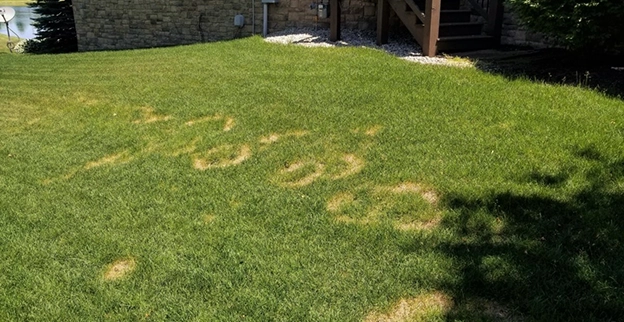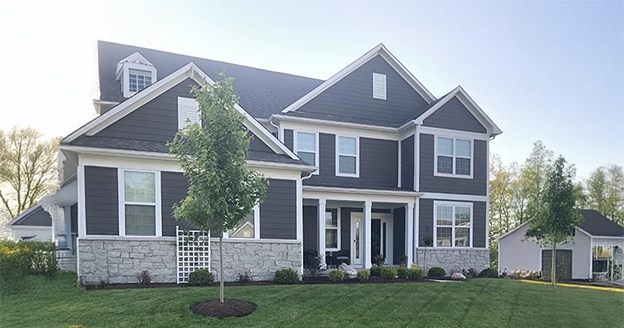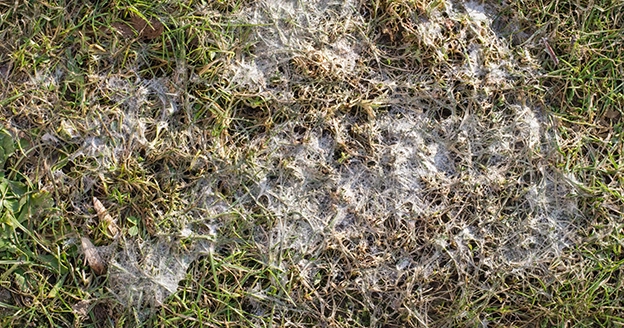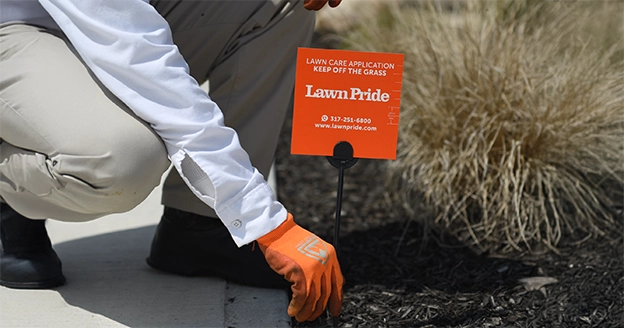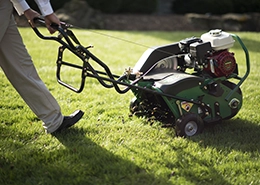Are brown spots or patches taking over your yard? You might be dealing with lawn fungus. Lawn Pride of North Raleigh provides lawn fungicide treatments in Raleigh, North Carolina, and the surrounding areas. These treatments target fungal diseases that threaten the health and beauty of your lawn. With our expert care, you can restore your grass to its lush, vibrant state and prevent further issues.
We Can Treat All Common Types of Lawn Fungus
North Raleigh’s warm, humid climate creates the perfect conditions for lawn fungal diseases to thrive, especially during the summer months when moisture levels are high. Some of the most common issues homeowners face include brown patch, dollar spot, and red thread, all of which can quickly damage the health and appearance of your lawn if left untreated. Proper lawn care and preventative measures are key to keeping these fungal diseases at bay.
- Brown patch lawn fungus
- Dollar spot lawn disease
- Gray leaf spot disease
- Leaf spot disease
- Pythium lawn fungus
- Red thread lawn disease
- Zoysia patch fungus

How Does Lawn Disease Develop?
Lawn fungal diseases rely on three key factors to thrive, often referred to as the “Disease Triangle.” These factors include the presence of a susceptible host (such as certain types of grass), the right environmental conditions (like humidity, heat, or excessive moisture), and the presence of a pathogen (fungus) capable of causing the disease. When all three elements come together, fungal infections can spread quickly, damaging the health and appearance of your lawn.
Presence of Pathogens
Fungal spores are naturally present in every lawn. However, they remain dormant unless triggered by specific conditions. A sufficient quantity of spores must exist for a fungal disease to take hold.
Susceptible Host
Some types of grass are more vulnerable to fungal infections than others. For example, perennial ryegrass and Kentucky bluegrass are particularly susceptible to diseases like brown patch and dollar spot. Weak or stressed lawns are even more prone to infection.
Environmental Conditions
Many fungal diseases thrive in hot, humid conditions, making Raleigh a prime location for outbreaks. Excessive moisture from overwatering, prolonged wet grass blades, or poorly drained soil also sets the stage for infections. Understanding how lawn diseases develop helps us deliver precise treatments, stopping fungal issues before they can take over your yard. By addressing each factor of the Disease Triangle, we create an environment where your grass can flourish.
Lawn Pride Professional Fungicide Treatment for Your Lawn
-
PreventionOur range of preventative treatments creates a protective barrier against common lawn fungi. By addressing potential issues before they arise, we can ensure your lawn stays healthy and disease-free.
-
TreatmentWhen a fungal disease takes over your lawn, it is important to move quickly. Our team of local lawn care specialists will diagnose the type of fungus and use the most effective fungicide.
-
MaintenanceBeyond addressing current fungal issues, our treatments also include measures to shield your lawn from future outbreaks. Our proactive strategies help ensure your lawn remains vibrant year-round.
Our Special Offers
We understand your goal to keep your lawn looking its best. We take pride in your lawn because we know you do, too. Check out our special offers to see how you can save on your next lawn care application.
Services We Provide
What Our Lawn Weed Control Service Includes
Some basic lawn maintenance techniques can improve the health of your grass and diminish weeds. One such method is keeping your roots well-fed with regular fertilization treatments. Aeration and/or seeding can also help thicken the lawn, leaving less room for weeds to germinate. Lawn Pride has special programs, like our 7-Application and Enhanced Lawn Care Programs, that bundle all these services into one ultimate lawn care package.
Other services we provide include:
-
-
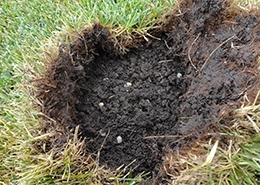
Grub Control
Learn More Grub ControlWe apply targeted insecticides or pesticides that specifically target larvae or nymphs.
-
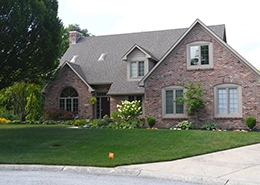
Fertilization
Learn More FertilizationWe use targeted fertilization treatments throughout the year.
Customer Reviews
View All Reviews
The Neighborly Done Right Promise® delivered by LawnPride®, a proud Neighborly company.
Lawn Pride of North Raleigh
Our specialists deliver the level of lawn care you need and deserve. We're preferred providers of North Raleigh lawn care, distinguished by our commitment to ensuring our customers understand our processes and are thrilled with the results. You can count on Lawn Pride to provide exceptional customer care as we develop a lawn that makes you proud. Lawn Pride of North Raleigh provides lawn care services for the following cities:
FAQs About Lawn Fungus Treatments
Lawn fungus can be confusing, frustrating, and even a little overwhelming. From identifying the problem to finding the right solutions, it’s easy to feel unsure about what steps to take. That’s why we’ve put together answers to some of the most common questions about lawn fungus to help you feel confident and equipped to protect and maintain a healthy, vibrant yard.

Join Our Team
“We have the power to make things better.” That’s our mantra, not only for our customers' lawn issues, but also you, a future team member! At LawnPride, we provide a career path for growth and treat you like family. They know that a happy, motivated team is key to serving customers well. That's why we value integrity and respect and create a strong work ethic.
